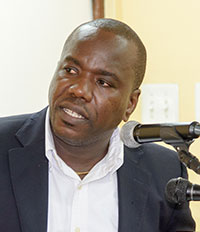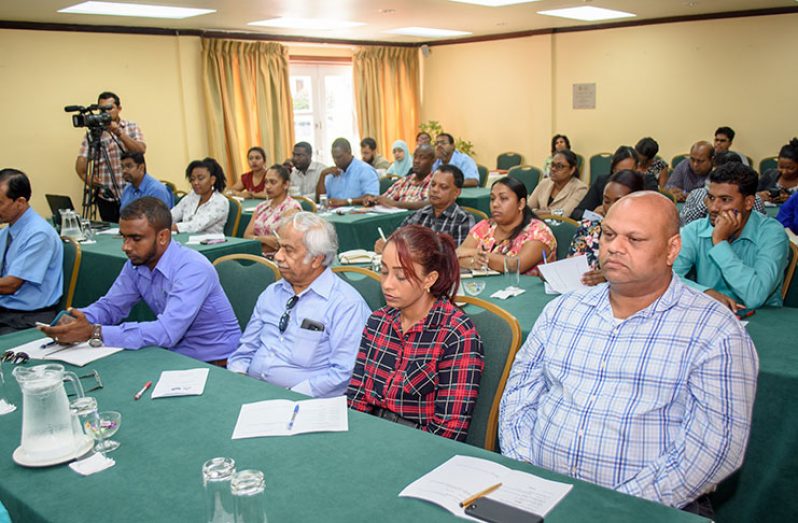–CARPHA temporarily filling the void

A STAFF shortage has left the Government Analyst Food and Drug Department (GAFDD) hamstrung and incapable of assessing medical drugs.
This has caused GAFDD Director, Marlon Cole, to again plead for staff on Tuesday while being interviewed by members of the media.
Last year, Cole had said that the Food and Drug Department, which had only six inspectors at the time, was facing a number of challenges with addressing approximately 600 importers.
This year, the situation has gotten much worse, because the department now has only three inspectors at its disposal.
“Due to the limited amount of inspectors, we are unable to do any assessment of medical drugs,” Cole said, adding that the only procedure they can follow at the moment is to review the dossiers that are submitted by importers of medical drugs.
In reviewing those dossiers, what the GAFDD will in essence be doing is ensuring that they follow the submission criteria, because time does not permit the department to do an actual assessment.
After ensuring that all the requisite documents are in place, the department will then issue a marketing authorisation to the relevant importer, which will allow him to distribute the medical drug that has been registered.
Cole, however, said that there is an urgent need for persons to do extensive assessments such as drug-safety tests; checking to see if the drug was tested on animals and humans; and ensuring that it went through clinical trials and so forth.
“We have not been doing things effectively, because of the shortage of inspectors,” Cole said, “so we have articulated the position to the ministers, which was accepted and validated as a need for urgent attention.”
EASE THE BURDEN
Meanwhile, despite the odds, some of the department’s burden has been somewhat lifted, because Minister of Public Health Volda Lawrence, in March signed on to the Caribbean Public Health Agency (CARPHA)’s Caribbean Registration System (CRS).
Through the Memorandum of Understanding (MoU) with CARPHA, instead of investors submitting their dossiers to the Food and Drug Department, they will now have to do so electronically to the CRS for assessment of the drug(s) bio-availability, drug safety and so forth.
During a meeting with stakeholders on Wednesday at the Cara Lodge, Cole pointed out that CARPHA will do the assessment and make recommendations on behalf of the GAFDD for the drug to be registered in the investors’ territory.
“CRS relies on certification of the WHO-prequalified medicines and those which received marketing authorisation in Europe, Canada, the U.S., and Mexico,” Cole said.
“They do assessments to ensure that there are checks and balances as they relate to solution, acid disintegration test and so forth, after which they make a recommendation to the other member states before giving authorities the right to issue or not issue a marketing authorisation for the tested drug,” he added.
Added to that, the registration system will put emphasis on sub-standard, spurious, falsely labelled, falsified and counterfeit (SSFFC) drugs.
CARPHA will, however, only be assessing generic drugs such as those for Human Immunodeficiency Virus (HIV), Malaria and Tuberculosis.
This means that the GAFDD will still be tasked with assessing innovator (brand-oriented) products.




.png)









